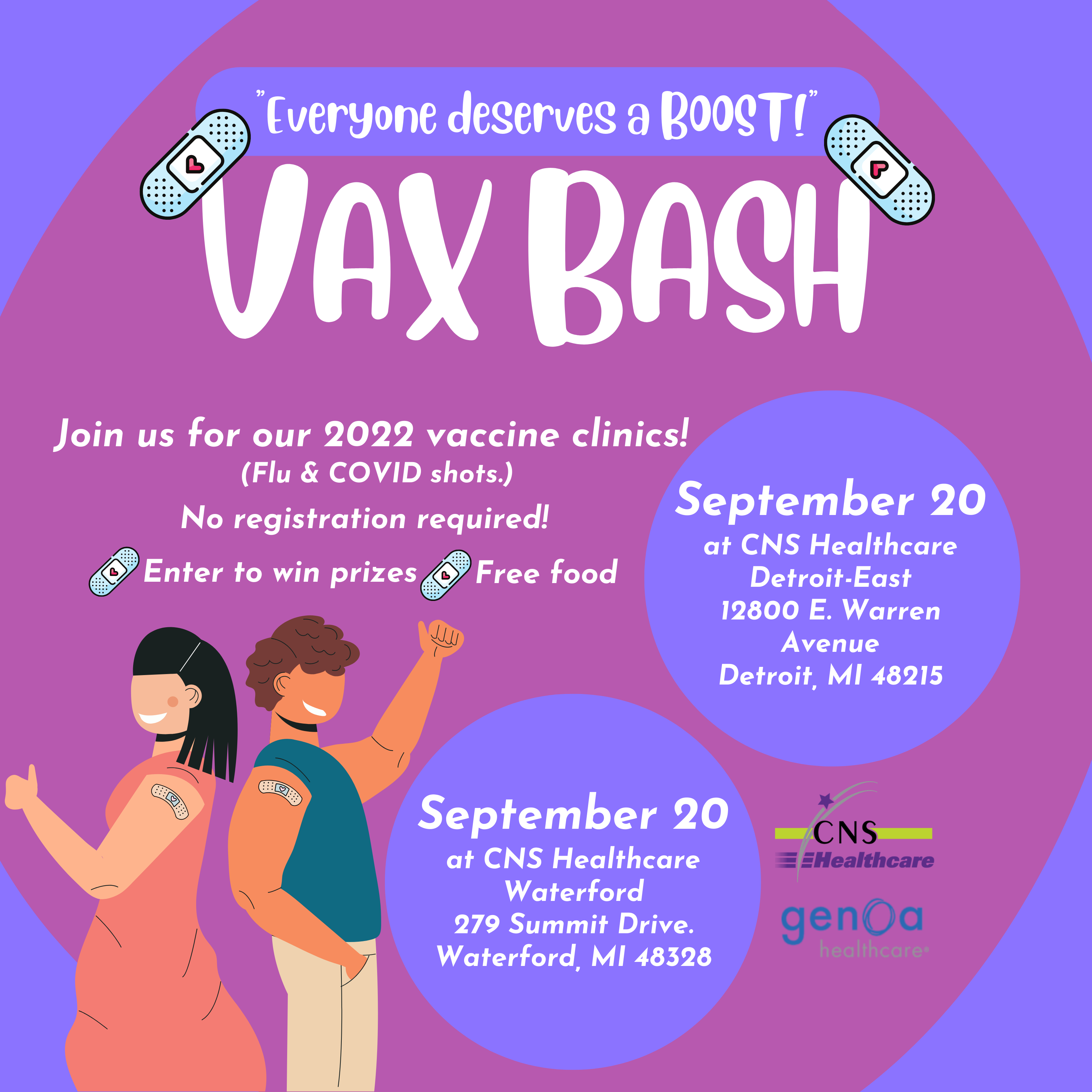Rita Dinser, RN, Infection Control Nurse, CNS Healthcare
Join CNS Healthcare and Genoa Healthcare at Vax Bash. We are ready to give you a BOOST!
Come and enjoy a BBQ, gift card raffle and music, all while protecting yourself from seasonal flu and COVID-19 (Moderna.) Walk right up, no registration is required. We look forward to seeing you at Vax Bash. September 20, 2022, from 11 a.m. to 3 p.m. at CNS Healthcare Warren (12800 E. Warren, Detroit, MI 48215) or September 22, 2022, from 11 a.m. to 3 p.m. at CNS Healthcare Waterford (279 Summit Drive, Waterford, MI 48328.)
There are many benefits of getting vaccinated against COVID-19:
- COVID-19 vaccines are effective at protecting people from getting seriously ill, being hospitalized and even dying — especially people who are boosted.
- Nationally, unvaccinated adults had 3.6 times the risk of hospitalization from COVID-19 compared to people up to date on their vaccination.
- For those over 65 years of age the risk rises to 3.9 times higher.
- COVID-19 vaccines are safe —much safer than getting COVID-19.
- Post-COVID conditions can include a wide range of ongoing health problems; these conditions can last weeks, months or years.
- Post-COVID conditions are found more often in people who had severe COVID-19 illness, but anyone who has been infected with the virus that causes COVID-19 can experience long-term conditions, even people who had mild illness or no symptoms.
- COVID-19 vaccines can offer added protection to people who had COVID-19, including protection against being hospitalized from a new infection.
As with vaccines for other diseases, people are protected best when they stay up to date with the recommended number of doses and boosters.
Even healthy people need a flu vaccine.
Influenza (flu) is a potentially serious disease that can lead to hospitalization and sometimes even death.
Every flu season is different, and flu can affect people differently, but millions of people get influenza every year, hundreds of thousands of people are hospitalized, and thousands to tens of thousands of people die from flu-related causes every year.
Flu can mean a few days of feeling bad and missing work or it can result in more serious illness, including bacterial pneumonia, ear infections, sinus infections and worsening of chronic medical conditions, such as congestive heart failure, asthma or diabetes.
An annual seasonal flu vaccine is the best way to help protect against flu. Vaccination has been shown to have many benefits, including reducing the risk of flu illnesses, hospitalizations and even the risk of flu-related death.
While some people who get a flu vaccine may still get sick, flu vaccination has been shown in several studies to reduce the severity of illness.
It is best to get vaccinated before influenza begins to spread. It takes about two weeks for the flu vaccine to provide full protection, so the sooner you get vaccinated, the more likely it is that you will be fully protected once flu begins to circulate in your community.









